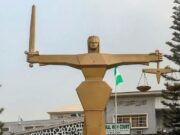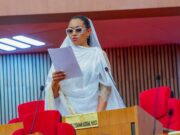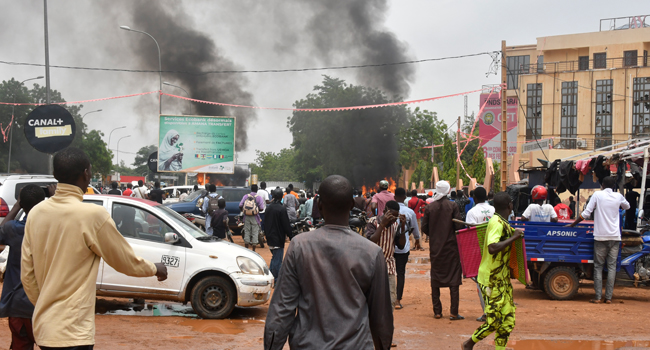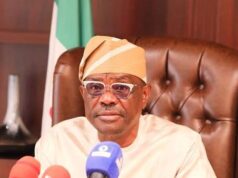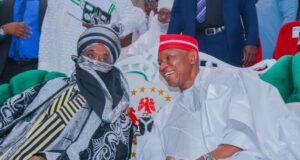President Bola Ahmed Tinubu will today, Sunday, host a special meeting of the Economic Community of West African States (ECOWAS) leaders to deliberate on the coup d’etat in Niger Republic. The meeting couldn’t have come at a more auspicious time.
Our next door neighbour, Niger Republic, woke up last Wednesday to a constitutional crisis as mutinous soldiers of the country’s Presidential Guard held its democratically elected President, Mohamed Bazoum hostage, after sealing off access to his residence and office in the capital, Niamey.

By Wednesday night, the soldiers sounded a familiar tone. “We, the defence and security forces have decided to put an end to the regime of President Bazoum”, due to “the continued deterioration of the security situation, poor economic and social governance”, said their spokesman Colonel-Major Amadou Abdramane, in a televised address.
He then suspended all state institutions, closed air and land borders, and asked “all external partners” not to interfere.
The Nigerien Army, initially reluctant, soon joined the uprising in order to “preserve the physical integrity” of the president and his family and avoid “a deadly confrontation that could create a bloodbath and affect the security of the population”, according to the Army Chief of Staff. By Friday, coup mastermind and head of the Presidential Guard, Gen Abdourahmane Tchiani, publicly declared himself the new leader of Niger.

Although he has not been heard again since then, President Bazoum had in a social media post on Thursday morning vowed to protect the “hard-won” democratic gains of his country. His Foreign Minister, Hassoumi Massoudou also issued a rallying cry on Twitter, calling “all democrats and patriots” to make the coup fail.
There are concerns particularly about the increasing reversal of democracy in francophone West Africa. Since 2020, rogue soldiers have overthrown democratic governments in Mali (August 2020 and May 2021), Guinea (September 2021), and Burkina Faso (January and September 2022). And now, another military usurpation of democracy in Niger. In 2021 alone, there were six coup attempts on the continent, four of them successful, a worrying trend that leaders both in Africa and beyond have decried.

For some of these recent successful coups, however, the military’s resurgence in government had been in part fueled by the unfortunate attempts by democratically elected leaders to extend their constitutional tenures, and thus giving the soldiers reason, however unjustifiable, to oust them. Niger’s case is different. President Bazoum had only been inaugurated in April 2021, following the December 2020 and February 2021 presidential elections in the country. The fact that Bazoum was not trying to perpetuate himself in power, having not even completed his first term, makes last week’s coup even more brazen, and therefore, completely unacceptable under any guise.
Moreover, we are compelled to observe some correlation between being Francophone and autocratic government among African countries, since democratization and multiparty systems became the norm in the late 1990s. We note, for example, that in Africa, countries where autocrats of old have remained in power to date, where leaders have successfully changed constitutional term limits, and where the presidency had passed from father to son are predominantly, if not exclusively, Francophone.

This is in sharp contrast to Anglophone countries like Nigeria, Kenya, Ghana, Liberia, etc, where constitutional rule has tended to become entrenched, even if they may not have delivered better dividends of democracy than elsewhere. Of course, Uganda and The Gambia present contrasting examples, but the correlation is particularly important because we wonder why the President of a Francophone African country, who not long ago publicly said that he would like to steer his country away from the apron strings of France, would suddenly find themselves deposed in a military coup for virtually no reason whatsoever.
We commend, the federal government which, in a significant diplomatic move, dispatched a high-powered delegation to Niamey, comprising the immediate former Governor of Katsina State, Aminu Masari, Director General of National Intelligence Agency (NIA), Ambassador Ahmed Rufai Abubakar and Chief of the Air Staff, Air Vice Marshal Hassan Abubakar, to engage with the coup leaders to facilitate dialogue and seek a peaceful resolution.

We also commend the UN, the EU and AU, as well as world leaders who have condemned the coup and spoken words of support for Bazoum and democracy. Notably also, President Bola Ahmed Tinubu, as the chairman of Authority of Heads of States and Governments of the Economic Community of West African States (ECOWAS), has issued a stern warning that the sub-region would not tolerate anti-democratic forces in Niamey.
The usual verbal platitudes would not do, however. This is why today’s ECOWAS emergency summit is imperative. The regional body must unite and push against this brazen assault on the region’s sensibilities. Nigeria should take this threat to democracy on its neighbour as a reprehensible affront that most not stand.
As we did in Sao Tome and Principe in 2003, and The Gambia more recently, Nigeria must marshal and deploy all regional, continental and global measures to restore democracy to Niger Republic and return President Bazoum to power. Nigeria must reject the resurgence of military rule in Africa completely, particularly one that is right next door.



